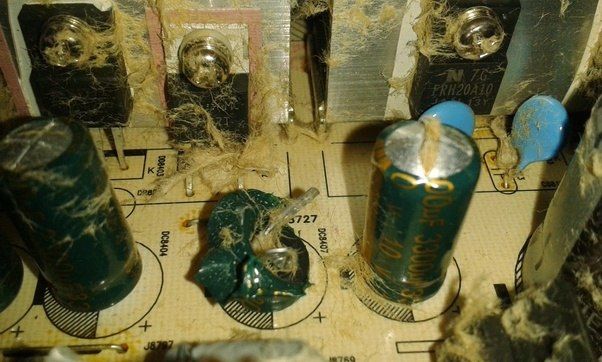Today I tried to turn my PC on, but pressing the power button doesn't do anything. I grabbed the power cord to push it in to make sure it wasn't loose, and there was a sparking/buzzing sound near it. Is this a power supply failure? I read that it might be the power supply shorting due to dust, so I hoovered inside the case and the power supply vent and tried to get rid of as much dust as I could.
Yesterday, I turned my PC on, and it went on for a few seconds, then randomly turned off, but once I turned it on again it stayed on. It has also randomly turned off instantly a few times in the past. How do I find out where the problem is, when it won't even turn on? Should I buy a new power supply? Or is there an easier way to tell if the issue is the power supply, rather than another component or the switch? Could a fan cause the PC to not turn on? Because I used to have problems with the fan not spinning fast enough, and I'd have to manually spin it to start it up, mainly in the winter, but that hasn't been a problem since early this year.
If this is the PSU, do you think my ssd is safe? It's an m.2 under the GPU. That's what I mainly care about. Could PSU failure damage it? I haven't backed up in a few months.
Yesterday, I turned my PC on, and it went on for a few seconds, then randomly turned off, but once I turned it on again it stayed on. It has also randomly turned off instantly a few times in the past. How do I find out where the problem is, when it won't even turn on? Should I buy a new power supply? Or is there an easier way to tell if the issue is the power supply, rather than another component or the switch? Could a fan cause the PC to not turn on? Because I used to have problems with the fan not spinning fast enough, and I'd have to manually spin it to start it up, mainly in the winter, but that hasn't been a problem since early this year.
If this is the PSU, do you think my ssd is safe? It's an m.2 under the GPU. That's what I mainly care about. Could PSU failure damage it? I haven't backed up in a few months.
Last edited:


